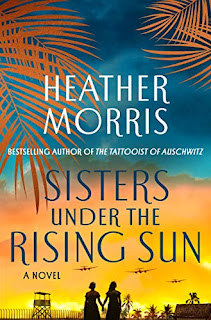tugs at the heartstrings...
The Lost Love of a Soldier: HarperImpulse Historical Romance: Marlowe Intrigue #.05 by Jane Lark
I did not expect to be as moved by this novel as I was.
The young innocent who flees a harsh father to the arms of her true love and from thence to Gretna Green pulled me in. Actually Ellen's choices were few. Either she marry a much older, titled gentleman her father has dictated she must accept or take the choice about her future into her own hands. Ellen, Lady Eleanor, daughter of the Duke of Pembroke, chooses to give up her position in society, and takes up the life of 'following the drum' with her husband, Captain Paul Harding--right to Brussels, the Battle of Quatre-Bras and Waterloo. Really the introduction into the life Ellen was to lead was pretty stark for a young girl of seventeen who's known very little of the harsh realities of life and even more so of war.
The scene at Lord Richmond's ball has been played out in various novels including Heyer's
An Infamous Army. It gets to me every time, as it did once.
Here though, the battle is the prelude to the change in status for the young Captain's wife, who has no idea where the course she choses, whilst in shock, will eventually lead her.
I did shed a tear or two when she finally realizes the situation she has blindly walked into in the grips of her despair. The title says it all!
And then of course the tragedy and suffering that happens now will continue through other novels for herself and others.
A harsher depiction of the regency times than is often given, the grim reality of war, and begs the question generally of how does one survive major tragedies and disasters, alone and destitute, without resources?
It certainly adds to my understandings about John Harding, the Duke of Pembroke in The Scandalous Love of a Duke.
A NetGalley ARC
I did not expect to be as moved by this novel as I was.
The young innocent who flees a harsh father to the arms of her true love and from thence to Gretna Green pulled me in. Actually Ellen's choices were few. Either she marry a much older, titled gentleman her father has dictated she must accept or take the choice about her future into her own hands. Ellen, Lady Eleanor, daughter of the Duke of Pembroke, chooses to give up her position in society, and takes up the life of 'following the drum' with her husband, Captain Paul Harding--right to Brussels, the Battle of Quatre-Bras and Waterloo. Really the introduction into the life Ellen was to lead was pretty stark for a young girl of seventeen who's known very little of the harsh realities of life and even more so of war.
The scene at Lord Richmond's ball has been played out in various novels including Heyer's
An Infamous Army. It gets to me every time, as it did once.
Here though, the battle is the prelude to the change in status for the young Captain's wife, who has no idea where the course she choses, whilst in shock, will eventually lead her.
I did shed a tear or two when she finally realizes the situation she has blindly walked into in the grips of her despair. The title says it all!
And then of course the tragedy and suffering that happens now will continue through other novels for herself and others.
A harsher depiction of the regency times than is often given, the grim reality of war, and begs the question generally of how does one survive major tragedies and disasters, alone and destitute, without resources?
It certainly adds to my understandings about John Harding, the Duke of Pembroke in The Scandalous Love of a Duke.
A NetGalley ARC




Comments
Post a Comment